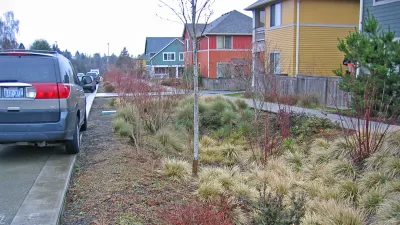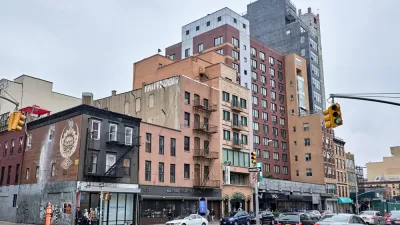The New York Times editorial board praises the Sept. 26th decision of the N.J. Supreme Court to uphold the 1983 landmark, affordable housing, anti-exclusionary zoning principles known as Mount Laurel and reject the appeal by Christie and 11 towns.
The editorial board calls the historic Mount Laurel decisions among "the more important civil rights decisions of the modern era" and opines that the "New Jersey Supreme Court has wisely rejected an attempt by Gov. Chris Christie to undermine" them.
The original case dates to the 1960s when a group of African-Americans had planned to build a low income housing development - but Mount Laurel used zoning to prevent it. They sued, and the result in 1975 "was the first ruling in the country to prohibit communities from enacting 'exclusionary zoning' practices", writes Colleen O'dea in NJSpotlight. A second ruling occurred in 1983.
In last week’s strongly worded decision, the court made clear that it would be keeping a close eye on both the Christie administration and wealthy communities that might be inclined to flout the law, which limits the use of exclusionary zoning as a means of preventing the construction of affordable housing.
The National Low Income Housing Coalition provides the background for the ruling on Sept. 26 that rejected the attempt by Christie and eleven suburban communities to undo what The New York Times called in their January editorial, "one of the most important civil rights decisions of modern times."
A group of eleven municipalities in 2012, with the support of Governor Chris Christie’s Administration, appealed an appellate court decision that upheld the Mount Laurel doctrine. The appellate court rejected the state’s 2008 regulations allowing municipalities to establish their own affordable housing obligations, which could discourage affordable housing through zoning and other land use powers.
The Times editorializes that "(t)he central issue in last week’s ruling was Mr. Christie’s effort to interpret the “fair share” mandate in a way that would essentially allow communities to decide for themselves how much affordable housing should be built. This, in turn, would give hostile communities license to block affordable housing."
FULL STORY: EDITORIAL: A Historic Fair Housing Decision Reaffirmed

Maui's Vacation Rental Debate Turns Ugly
Verbal attacks, misinformation campaigns and fistfights plague a high-stakes debate to convert thousands of vacation rentals into long-term housing.

Planetizen Federal Action Tracker
A weekly monitor of how Trump’s orders and actions are impacting planners and planning in America.

In Urban Planning, AI Prompting Could be the New Design Thinking
Creativity has long been key to great urban design. What if we see AI as our new creative partner?

Portland Raises Parking Fees to Pay for Street Maintenance
The city is struggling to bridge a massive budget gap at the Bureau of Transportation, which largely depleted its reserves during the Civd-19 pandemic.

Spokane Mayor Introduces Housing Reforms Package
Mayor Lisa Brown’s proposals include deferring or waiving some development fees to encourage more affordable housing development.

Houston Mayor Kills Another Bike Lane
The mayor rejected a proposed bike lane in the Montrose district in keeping with his pledge to maintain car lanes.
Urban Design for Planners 1: Software Tools
This six-course series explores essential urban design concepts using open source software and equips planners with the tools they need to participate fully in the urban design process.
Planning for Universal Design
Learn the tools for implementing Universal Design in planning regulations.
Gallatin County Department of Planning & Community Development
Heyer Gruel & Associates PA
JM Goldson LLC
City of Camden Redevelopment Agency
City of Astoria
Transportation Research & Education Center (TREC) at Portland State University
Jefferson Parish Government
Camden Redevelopment Agency
City of Claremont





























